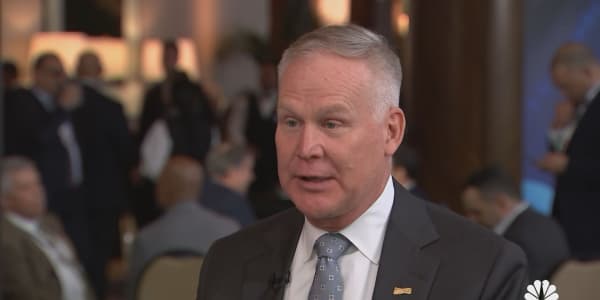
Canadian crude has fallen near record lows, but Canada's minister of natural resources, Jim Carr, still sees investment opportunities in the country.
"It's stable. It's got a long track record in the industry. I'm confident that, even within this transition period, we'll do as well as any other country in making the necessary adjustments," Carr told CNBC's "Squawk on the Street" on Wednesday.
While much of the attention has been on the low prices of West Texas Intermediate and Brent, Canadian oil has been trading much lower. Western Canadian Select, the benchmark for Canadian crude, settled at $19.32 on Tuesday.
Despite the protracted downturn in oil prices, Carr said Canadian producers are persevering.
"There are many leaders in Canada's oil and gas sector who are being innovative in the ways in which we're extracting energy from the ground, ways in which we're seeking more reliably efficient and more environmentally sustainable ways of producing oil and gas," he said.
Low demand and oversupply have been particularly hard on Canadian provinces. Alberta, which has the third-largest oil reserves in the world, has lost 63,000 jobs, according to Carr.
"It's a tough time for the industry. But we believe we're resilient, that there are innovators and entrepreneurs across western Canada and the whole country that will adapt to the new reality," he said.

Canadian producers Cenovus Energy and MEG Energy told Reuters that while there is no immediate need to cut production, they have plans to reduce output if oil prices continue to fall. Cenovus Chief Executive Brian Ferguson told the news agency earlier this month that U.S. benchmark crude would have to stay below $27 a barrel well into 2017 for a slowdown in production to make economic sense.
For now, producers are looking at alternatives such as selling off pipeline, storage and production facilities to ease the financial squeeze caused by dwindling revenues.
— Reuters contributed to this report.








